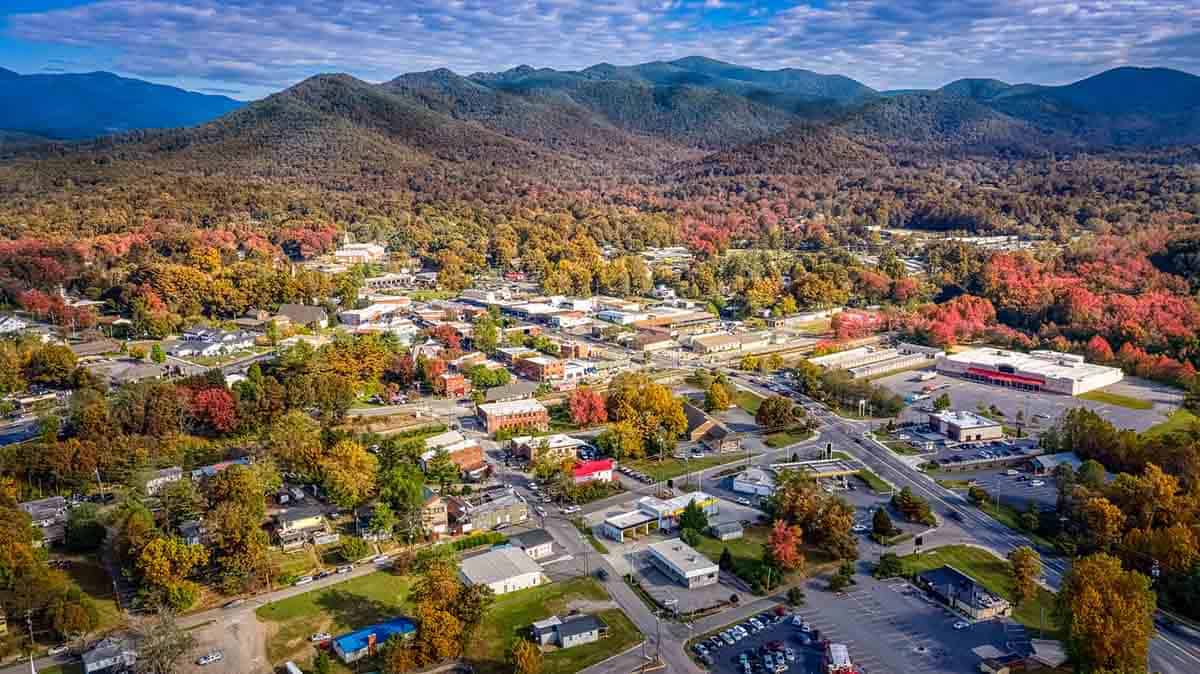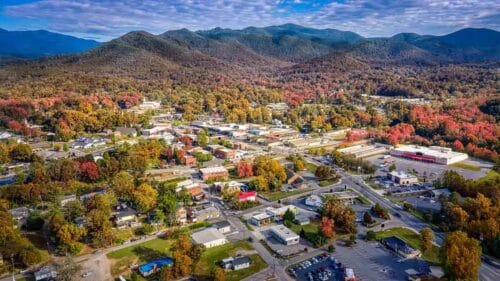
Asheville, North Carolina, has long captivated visitors and residents with its stunning mountain landscapes, vibrant arts community, and welcoming atmosphere. While the Asheville real estate market has historically been competitive and thriving, the devastating impact of Hurricane Helene in 2024 created unprecedented challenges for this mountain community. The storm caused significant property damage and tragic loss of life, fundamentally shifting the market’s focus toward recovery and rebuilding.
Now, brokers play a crucial role in Asheville’s healing process, and their work extends beyond typical transactions to include helping displaced families find safe housing, supporting community restoration efforts, and contributing to the city’s resilience. This guide explores how you can navigate Asheville’s evolving market while making meaningful contributions to its recovery.
Key Takeaways
- Recovery-Focused Market: The Asheville real estate market in 2025 is centered on rebuilding efforts, helping displaced families find homes, and restoring communities after Hurricane Helene’s devastation.
- Economic Resilience: Despite initial displacement, Asheville’s population is gradually returning, supported by tourism, healthcare, and technology sectors that continue to provide economic stability.
- Neighborhood Opportunities: Resilient areas like Downtown Asheville, West Asheville, Biltmore Park, and Montford offer real estate brokers unique opportunities to assist in the city’s rebuilding process.
- Community Engagement: Success as a broker in Asheville requires building meaningful connections, leveraging technology for recovery support, and pursuing quality real estate education to better serve clients during this critical time.
Immediate Impacts on the Asheville Real Estate Market
Hurricane Helene’s effects on Asheville’s housing market were substantial and multifaceted. According to data from the Asheville Regional Housing Authority, approximately 3,200 homes suffered significant damage, with rebuilding costs estimated at $1.2 billion across the region. This devastation created immediate housing shortages, with nearly 15% of residents experiencing temporary displacement.
The short-term rental market saw dramatic shifts, with many properties pivoting from tourism to providing temporary housing for displaced residents. According to September 2025 data from AirDNA, about 40% of Asheville’s short-term rental inventory has returned to traditional rental or owner-occupied status to support local housing needs.
Long-term challenges persist in flood-affected areas, where rebuilding requires additional permits, flood mitigation measures, and insurance considerations. Property values in these areas have shifted significantly based on the extent of damage and potential for mitigation, presenting both challenges and opportunities for buyers and sellers in the post-hurricane market.
A Coordinated Recovery Effort: How Real Estate Brokers Can Help
The rebuilding of Asheville’s communities has benefited from coordinated federal, state, and local initiatives. FEMA has allocated $450 million for Western North Carolina recovery, with approximately $180 million specifically designated for Asheville housing restoration. The North Carolina Disaster Recovery Fund has supplemented these efforts with an additional $75 million for housing rehabilitation.
Real estate professionals can effectively navigate this recovery landscape by:
- Partnering with disaster recovery specialists to help clients understand rebuilding options
- Becoming knowledgeable about post-disaster financing programs, including Small Business Administration (SBA) loans and special mortgage products
- Connecting clients with contractors experienced in post-disaster reconstruction
- Staying informed about zoning changes and building code updates implemented after the hurricane
Opportunities in a Rebuilding Market
The rebuilding process has created unique opportunities for innovation and growth in Asheville’s real estate sector. Eco-friendly development has gained significant momentum, with new construction increasingly incorporating resilient design principles.
According to Zillow data from August 2025, homes with documented resilient features command a 12% premium in the Asheville market.
Neighborhood-specific opportunities
Neighborhood-specific opportunities include:
- Downtown Asheville: Commercial-to-residential conversions have increased by 25% as businesses relocate or redesign their footprints.
- West Asheville: Infill development on previously underutilized lots has created opportunities for affordable housing initiatives.
- River Arts District: Elevated construction techniques and flood-resistant designs are transforming this previously vulnerable area.
Why Asheville Remains a Prime Market
Despite the challenges, Asheville continues to attract professionals and those seeking a high quality of life. The community’s resilience, combined with its economic strengths and cultural appeal, reinforces its position as a desirable place to live and invest.
Workforce appeal
According to the Asheville Chamber of Commerce, the city has seen a 7% increase in remote worker relocations since January 2025, with many citing the community’s resilience as a key factor in their decision.
Tourism recovery
The tourism industry, a cornerstone of Asheville’s economy, has shown remarkable resilience. Visitor numbers for summer 2025 reached 85% of pre-hurricane levels, with the Buncombe County Tourism Development Authority reporting steady growth each month. This tourism-driven demand supports property values, particularly in areas popular with visitors.
Cultural magnetism
Asheville’s renowned arts scene, culinary excellence, and natural beauty continue to draw newcomers. The River Arts District has been particularly notable in its recovery, with 90% of studios and galleries reopened by mid-2025, creating renewed interest in surrounding real estate.
Asheville Neighborhood Spotlight
Certain neighborhoods have demonstrated exceptional resilience and offer unique opportunities for homebuyers and investors. Here’s a look at some of the most promising areas in the current Asheville real estate market.
Downtown Asheville
Downtown remains a vibrant center with strong demand for urban living options. According to Redfin data from September 2025, the average sales price for Downtown Asheville real estate, specifically condos, is $425,000, with properties typically selling within 18 days of listing. The area offers:
- Luxury condos and lofts in historic buildings
- Mixed-use developments with ground-floor retail
- Walking access to restaurants, galleries, and entertainment
West Asheville
This eclectic neighborhood continues to attract young professionals and families. The average single-family home price is $389,000, with a diverse housing stock including:
- Renovated bungalows and craftsman homes
- New construction infill projects
- Small multifamily properties popular with investors
The Haywood Road corridor has seen particular growth, with commercial property values increasing 9% in the past year despite recovery challenges.
Biltmore Park
This planned community offers upscale living with a range of amenities. The average home price of $575,000 reflects its continued desirability. The area features:
- Luxury townhomes and single-family residences
- Proximity to shopping, dining, and healthcare facilities
- Strong rental demand for investors
Montford
This historic district maintains its charm and strong community feel. With an average home price of $450,000, Montford offers:
- Well-preserved Victorian and Arts and Crafts homes
- Walking distance to downtown amenities
- Strong appreciation potential due to historic designation
Emerging Opportunities for Homebuyers and Investors
The Asheville market presents several emerging local real estate trends that create opportunities for both homebuyers and investors:
Second homes and vacation properties
Despite initial concerns, the vacation property market has shown resilience. According to data from the Land of Sky Association of REALTORS, vacation property transactions increased 8% in Q2 2025 compared to the previous quarter, with buyers citing long-term confidence in Asheville’s recovery.
Resilient home construction
Properties built or renovated with resilient design principles and sustainable housing trends command premium prices and experience shorter market times. According to September 2025 data from Zillow, homes with documented flood-resistant features sell 22% faster than comparable properties without these elements.
How Much Do Real Estate Brokers Make in Asheville, NC?
According to Indeed data from February 2025, the average income for real estate brokers in Asheville is $99,939. However, earnings vary significantly based on experience, specialization, and sales volume.
Download the North Carolina Real Estate Salary Guide
Tips for Succeeding as a Real Estate Broker in Asheville
Real estate professionals can make meaningful contributions to Asheville’s recovery while building successful practices. For those aspiring to join the industry or current brokers looking to enhance their expertise, a solid educational foundation is key.
Build meaningful connections
Form relationships with local businesses, community organizations, and rebuilding initiatives. Brokers who actively participate in recovery efforts report stronger client loyalty and referral networks.
Use technology to serve the community
Leverage digital tools to connect displaced families with housing options, share recovery resources, and provide market updates. Virtual tours and digital documentation have become essential in a market where many buyers begin their search remotely.
Choose a quality real estate school
Understanding Asheville’s evolving market requires comprehensive education. A quality school provides the local insights and specialized knowledge needed to navigate complex situations like post-disaster recovery, setting you up for success from day one.
Learn More: How Long Does it Take to Get a Real Estate License in North Carolina?
FAQs: Navigating Real Estate Post-Recovery
What are the best areas to invest in Asheville?
Areas showing strong recovery momentum include West Asheville, Biltmore Park, and the South Slope district of downtown. These neighborhoods combine resilience with strong rental demand.
How can buyers navigate the rebuilding phase?
Working with brokers experienced in post-disaster transactions is essential. These professionals can help identify properties with completed repairs versus those still requiring work, and connect buyers with appropriate inspectors and contractors.
What are the tax implications of buying property in Asheville?
Several tax incentives support rebuilding, including property tax abatements for substantial renovations and tax credits for resilient construction. A qualified tax professional can provide guidance on these opportunities.
Chart Your Path to Success With the Superior School of Real Estate
Superior School of Real Estate provides all the required courses for becoming a licensed real estate broker in North Carolina, with flexible options designed to accommodate any schedule. Our instructors bring practical experience in the Asheville market, including expertise in post-disaster recovery. With nearly 20 years of experience and having served over 500,000 students, we are the largest and most trusted real estate school in the state.
Contact Superior School of Real Estate today to learn more about the North Carolina real estate licensing process.
Disclaimer: This guide is for general informational purposes only, based on an August 2024 survey of Superior School of Real Estate alumni and publicly available industry sources. While Superior strives for accuracy, we make no guarantees regarding the completeness, reliability, or applicability of the information. Earnings and outcomes vary widely based on factors like location, experience, and market conditions and should not be considered guarantees. This guide does not constitute professional advice. Users should consult additional sources for personalized guidance.






